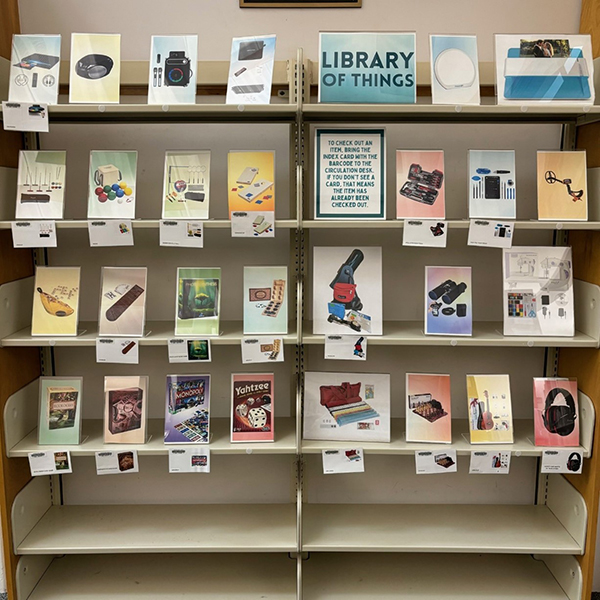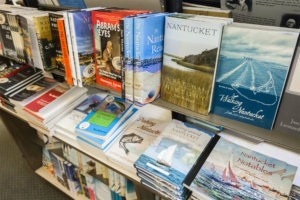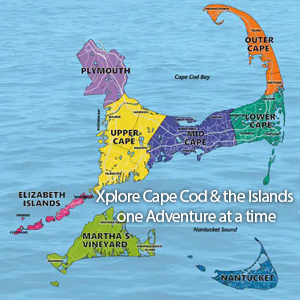Honoring Indigenous Voices through a Cape Cod Lens
Ann Scott, Executive Director of the Nantucket Atheneum
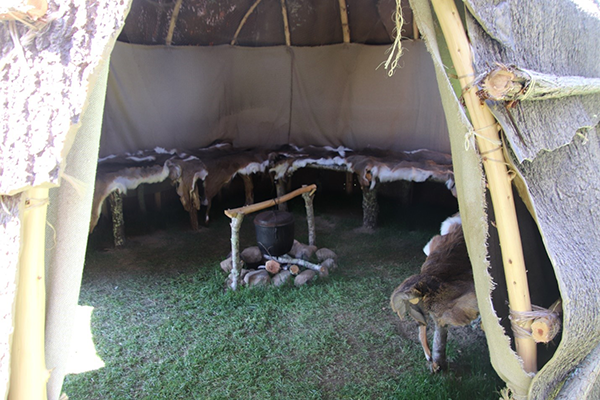
October is Indigenous Peoples Month—a time for respect and engagement with indigenous voices that have long been silenced or overlooked, as well as with the layered history of the land we inhabit—a landscape rich with its own narrative of belonging and loss.
Over 12,000 years ago, when sea levels were lower, the area that is now Cape Cod, Nantucket, Martha’s Vineyard, and the surrounding islands was part of the mainland. The Indigenous peoples who lived there, including the ancestors of the Wampanoag, inhabited these lands long before they were divided by the rising seas that formed Nantucket and the other islands about 6,000 to 10,000 years ago, and well before European colonization began to alter the landscape further.
As sea levels rose after the last Ice Age, these coastal groups adapted to the changes, maintaining their presence and cultural practices. The Mashpee Wampanoag became centered on the mainland (what is now Cape Cod), while the Aquinnah Wampanoag established themselves on what became Martha’s Vineyard.
The following books are an invitation to explore literature that honors the richness and complexity of the Indigenous experience and its intersection with the essence of place.
As We Have Always Done by Leanne Betasamosake Simpson
In a time marked by a reckoning with colonialism, As We Have Always Done potently and unapologetically challenges the narratives that have long dominated discussions about Indigenous peoples. With both fierce advocacy and nurturing wisdom, Simpson, a member of the Miskwaki Nation, speaks to the need for revitalization and reclamation of Indigenous identity. Her work illustrates the significance of storytelling as both a means of cultural transmission and a form of resistance, making it abundantly clear that the path forward lies in reconnecting with cultural roots and community.
This book is especially relevant for grappling with the ongoing complexities of colonialism and the importance of Indigenous voices in contemporary conversations about identity, rights, and environmental justice. Simpson’s insights urge us to reconsider our relationships—not just with the land but also with one another—nudging us from passive consumption to active participation in the resurgence of Indigenous culture.
For the Wampanoag, whose history is intertwined with both resilience and loss, this reclamation of identity is critical to the ongoing survival and resurgence of their culture on Cape Cod and the islands.
 Braiding Sweetgrass by Robin Wall Kimmerer
Braiding Sweetgrass by Robin Wall Kimmerer
In Braiding Sweetgrass, Robin Wall Kimmerer, both a botanist and a member of the Citizen Potawatomi Nation, deftly weaves together Indigenous wisdom and scientific inquiry as though they are two strands of a single vibrant thread. Blending memoir, philosophy, and ecological commentary, and written with a clarity that feels both intimate and expansive, each essay unfolds like a quiet conversation, revealing the undeniable intimacy between humans and the natural world, as well as the significance of building relationships beyond our fellow humans to the very earth that sustains us.
Her poignant reflections on the teachings of plants, particularly sweetgrass, illustrate the deep connections that Indigenous peoples maintain with their environment. For the Wampanoag, like many other indigenous peoples, the land and water were not merely resources but living entities—ancestors that provided sustenance and guidance. Braiding Sweetgrass serves as an urgent reminder of the need to revisit respect for our natural world, making it essential reading for anyone who views nature as more than just a backdrop for Instagram photos.
Kimmerer’s upcoming work, The Serviceberry, available November 19, will also explore these themes. This berry-sized book focuses on a plant steeped in cultural and ecological significance in Indigenous traditions, as Kimmerer again inspires readers to reflect on the profound meanings embedded in our interactions with the environment and how we, in our own lives, respond to the call of the natural world.
The Heartbeat of Wounded Knee by David Treuer
Finally, we come to Ojibwe author David Treuer’s The Heartbeat of Wounded Knee, a sweeping counter-narrative that emphasizes resilience in the face of adversity and serves as a revelatory antidote to the prevailing historical notions that diminish the vibrancy of indigenous cultures in the aftermath of Wounded Knee in 1890.
Through a kaleidoscope of cultural history and personal anecdotes, Treuer emphasizes the complexity of Indigenous identities, moving beyond reductive stereotypes to highlight the incredible diversity within these communities. He illustrates how Indigenous peoples have not merely survived but thrived, adapting through centuries of oppression.
For the Mashpee Wampanoag, who successfully fought for federal recognition in the 21st century, Treuer’s themes of survival and resurgence resonate deeply.
Treuer’s exploration of Indigenous identity is particularly poignant for Cape Cod and island readers, reminding us that history is not a linear path but a complex tapestry of experiences—including those of Indigenous peoples who no longer share this physical landscape. His work challenges us to view the Wampanoag not as relics of the past but as integral inhabitants in the ongoing story of this land.
Treuer’s balanced style makes The Heartbeat of Wounded Knee accessible to a broad audience while still inviting deeper contemplation of the contemporary realities of Indigenous peoples. His work skillfully shatters the myths of extinction and despair that so often pervade mainstream narratives, challenging readers to recognize the critical role Indigenous voices play in shaping the future.
 Honoring Indigenous Voices
Honoring Indigenous Voices
Braiding Sweetgrass, As We Have Always Done, and The Heartbeat of Wounded Knee serve as essential readings to engage with Indigenous voices and consider the complexities of history and culture. These books and others are available to borrow through the Cape Libraries Automated Materials Lending Service (CLAMS), which you may access with a free library membership.
Beyond books, your libraries host creative offerings, such as the Nantucket Atheneum’s foraging workshops that honor indigenous voices as well as teach participants about the identification and sustainable harvesting of wild native edible plants. Libraries also partner with local conservation groups, to bring expert-led interactive programs that make environmental education accessible to a broader audience.
 Contributing Author Ann Scott is the 9th Executive Director and Head Librarian of the Nantucket Atheneum. www.nantucketatheneum.org
Contributing Author Ann Scott is the 9th Executive Director and Head Librarian of the Nantucket Atheneum. www.nantucketatheneum.org
The Nantucket Atheneum is a private non-profit that proudly curates print and digital materials; maintains an archival collection of historic artifacts, cares for its regal 1847 building and garden, and delivers more than 1,300 programs and classes a year to both seasonal and year-round members.








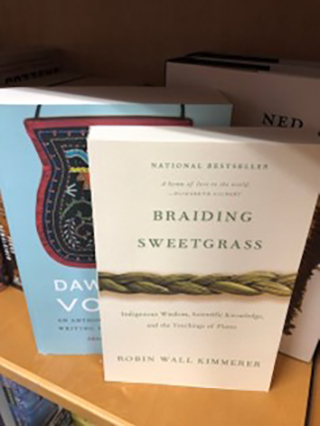 Braiding Sweetgrass by Robin Wall Kimmerer
Braiding Sweetgrass by Robin Wall Kimmerer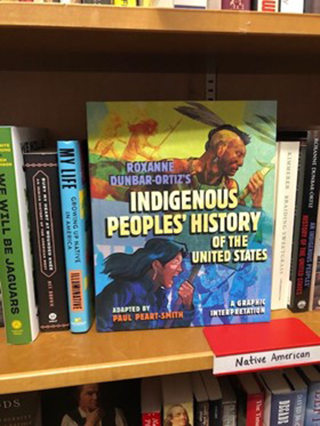 Honoring Indigenous Voices
Honoring Indigenous Voices
